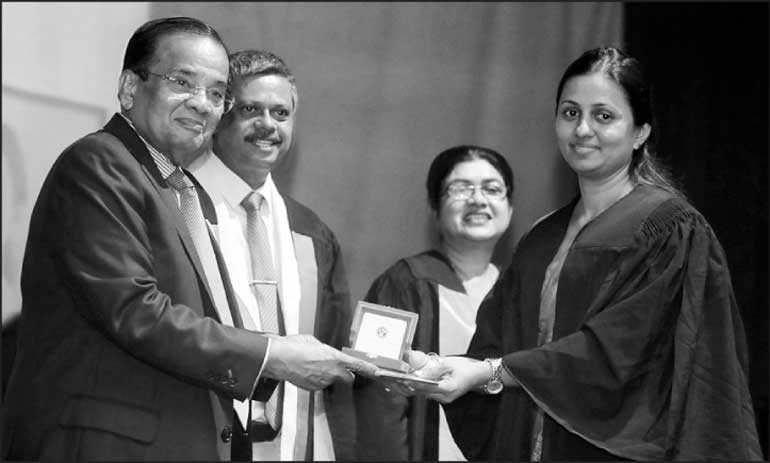Sunday Feb 22, 2026
Sunday Feb 22, 2026
Saturday, 21 September 2019 00:01 - - {{hitsCtrl.values.hits}}

Graduate teachers were appointed in the Western Province according to their merits without any political influences, said Western Province Governor A.J.M. Muzammil in Colombo on Thursday.
The Governor was speaking at the Annual Prize-Giving of the Susamayawardhana Vidyalaya held at the New Town Hall on Thursday.
Muzammil, who was the Chief Guest at the event, distributed the awards to students and teachers in the presence of parents, well-wishers, and other staff and students of the school. The Susamayawardhana Vidyalaya Principal W. A.K. Weerasooriya delivered the welcome address at the ceremony.
Addressing a packed audience, Muzammil pointed out that the selection and appointment of graduate teachers to schools in the Western Province was carried out based only on their own competitive skills and standard of education, in order to offer the best education to the students in the province.
“We have the highest number of students and teachers in our province, therefore, we have a greater responsibility,” he added. He lamented that the number of commerce graduate applicants exceeded the teachers’ requirements in the Western Province schools.
The Governor urged the students to gear their education toward the market needs of the country so that they can be absorbed where employment opportunities are available. Stressing the importance of vocational education in schools, Muzammil said the students should be guided in selecting suitable courses of studies, not only according to their aptitude but also according to society’s market needs. Muzammil also told students to give priority to their respective religious and cultural values during their school career.
He told the students that, as much as the students give priority to education, they should also give preference to their respective religious education. “Education is more useful to society provided there are religious values,” the Governor said, pointing out that most of the schools are built near places of worship so that religion and education can be taught in parallel with each other.